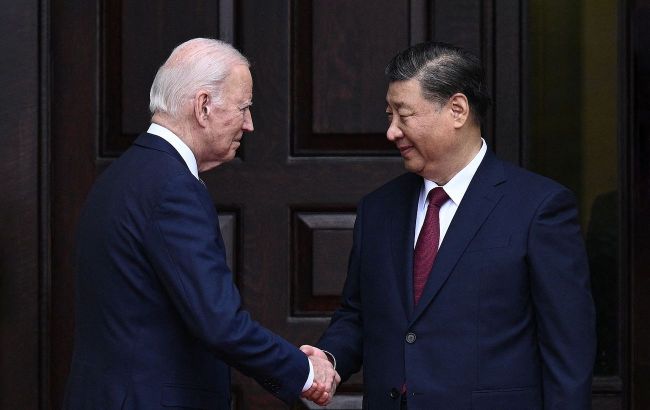US House of Representatives approves package of bills to counter China
 Photo: US President Joe Biden and Chinese leader Xi Jinping (getty images)
Photo: US President Joe Biden and Chinese leader Xi Jinping (getty images)
This week, the US House of Representatives approved a comprehensive package of bills aimed at countering Chinese influence. The initiative received bipartisan support, according to AP.
Technology
Specifically, the House of Representatives supported a bill that prevents federal funds from going to five biotechnology companies linked to China. This measure is deemed necessary to protect American health data and reduce reliance on China for medical supplies.
Another bill bans drones manufactured by the Chinese company DJI, a dominant player in the global market, on national security grounds.
To close an export control loophole, the House supported an amendment intended to block China's remote access — such as through cloud computing services — to advanced US technologies for artificial intelligence development and military modernization.
Espionage
A party-line bill mandates that the Department of Justice address Beijing’s espionage activities targeting US intellectual property and scientific institutions, and prosecute individuals involved in commercial theft, hacking, and economic espionage.
Electric vehicles
The House also approved a measure to exclude Chinese electric vehicles from receiving tax incentives for clean transportation. "America’s working families should not be forced to subsidize a nation whose decades of unfair trade practices and government subsidies have led to lost jobs, shuttered factories, and hollowed-out communities right here at home," said Representative Jason Smith, a Missouri Republican.
Diplomacy
The House backed several measures to strengthen sanctions against China and deepen ties with Asia-Pacific countries to counter Chinese influence.
This could lead to the closure of Hong Kong’s diplomatic missions in the US, stripping them of diplomatic privileges if it is deemed that the territory has lost its autonomy from mainland China.
It is noteworthy that the US and China have not agreed on a specific plan for negotiations to end the war in Ukraine.
On September 10, the US and China held their first military-to-military talks aimed at stabilizing relations. One of the topics addressed was the tension in the South China Sea.

